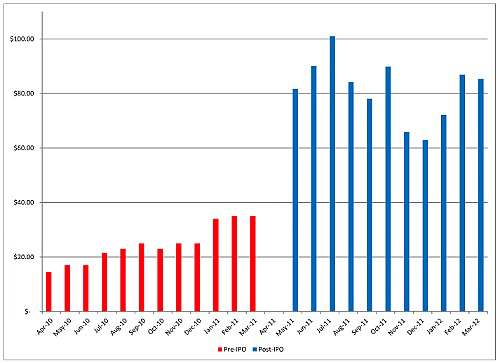Do trades on private secondary markets reflect fair market value—or fair value? Do the investors buying these securities represent market participants? Can secondary market transactions be considered orderly? These are just a few of the questions that a new, two-part article by Neil Beaton (Alvarez & Marsal) attempts to answer. Part 1, currently posted online, examines the development and operation of private secondary markets and then explores their impact on FMV as well as fair value (under ASC 820). To the ultimate question—whether secondary market transactions accurately reflect value under any standard—Beaton’s answer is “it depends” on the specific facts and circumstances:
The analyst must not lose sight of the fact that valuations of common stock options related to employees often have limited or no access to secondary markets. There is often limited data available on the volume of shares traded on secondary markets and the number of buyers or sellers. A reconciliation, or at least an acknowledgment, of secondary transactions is highly recommended.
In Part 2 of his article, coming exclusively to BVR this summer, Beaton promises an empirical analysis of the accuracy (or lack thereof) of secondary market prices when the same companies that have been trading on these platforms subsequently complete an IPO. As a teaser, he offers this chart, showing the pre-IPO prices of a company’s common stock traded on a secondary market and its post-IPO share. “Can you guess the stock?” Beaton asks.
